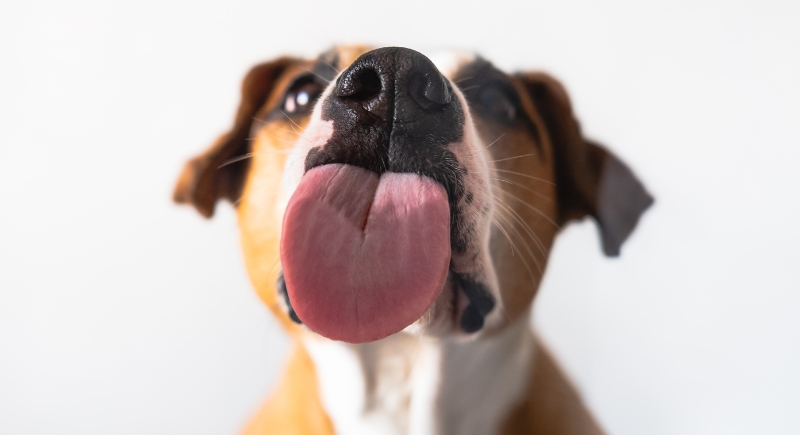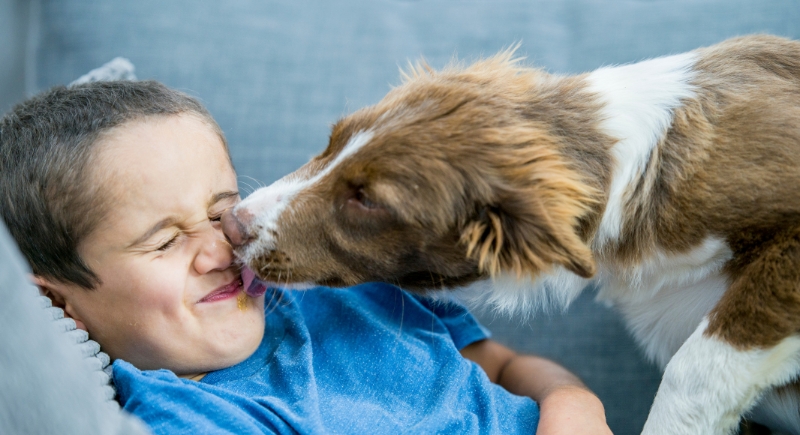4 Reasons Letting Your Dog Lick Your Face Is a Bad Idea
People love their dogs like family, so when that tongue comes out, it feels like affection. A wet lick across the cheek seems like a kiss, a small sign of love or loyalty. But as sweet as it looks, letting a dog lick your face isn’t as harmless as it sounds. That slobbery gesture can carry risks that go well beyond a little dog breath.
Here are four real reasons to think twice before letting your dog’s tongue near your face.
They Can Pass Harmful Germs to You

Image via Canva/Valeriia Boiko
The old saying that a dog’s mouth is cleaner than a human’s doesn’t hold up. A dog’s mouth holds bacteria that can cause illness in humans. Research has found that dogs can carry E. coli, Salmonella, Pasteurella, and Campylobacter, along with parasites such as hookworm and Giardia.
These organisms don’t always make dogs sick, but can trigger infections and stomach problems in people. When saliva touches your mouth, eyes, or nose, germs have an easy path inside. You might not notice symptoms immediately, and your dog might look perfectly healthy.
Veterinarians say it’s best to keep your face off-limits. The affection may feel genuine, but the microscopic trade-off is not worth it. Even dogs with regular dental care carry residue from what they lick.
Licking Can Send the Wrong Message
Behavior experts also say licking isn’t always affection. Dogs lick for attention, stress relief, or submission. They quickly learn that licking gets a reaction, which reinforces the habit. Over time, it can become a nervous behavior rather than a friendly one.
Getting too close also raises a safety issue. Face-to-face contact can confuse or overwhelm a dog, especially if it’s anxious or startled. A quick lick can turn into a warning snap. Trainers recommend setting clear limits and rewarding calm, relaxed behavior instead of licking. It keeps your bond positive without misunderstanding.
It Can Confuse Boundaries Between Dogs and Kids

Image via Getty Images/FatCamera
In homes with young children, face-licking can create boundary problems. When a dog licks a baby or toddler’s face, it might interpret that closeness as equality or ownership. Later, that confusion can lead to possessive behavior, especially during play or when the dog seeks attention.
Veterinarians and pediatricians advise keeping the habit out of your household routine. Dogs can still bond with kids through play, walks, and gentle touch without face contact. Small boundaries like that keep the family dynamic healthy and reinforce the dog’s place in the pack.
It’s Not Great for Your Dog Either
Your skin carries traces of skincare products, deodorants, and other chemicals that aren’t safe for dogs to ingest. Common ingredients in lotions, sunscreen, acne creams, or perfumes can irritate a dog’s stomach or cause toxicity. Even small amounts can lead to vomiting or worse.
Keeping your dog from licking your face protects both of you. They avoid the risk of chemical ingestion, and you avoid the spread of unwanted bacteria. Everyone wins, and your bond stays healthy.